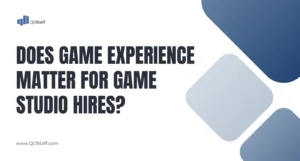The iGaming industry has experienced explosive growth over the past decade, fueled by advances in technology, shifting consumer preferences, and the power of globalization. As more people turn to online gaming platforms for entertainment, the sector continues to expand, offering exciting opportunities for companies and professionals alike. However, with this growth comes a critical demand for skilled professionals who can drive innovation, creativity, and operational excellence.
The demand for skilled professionals in iGaming
As the industry evolves, so does the demand for highly skilled and innovative professionals. From game developers and data analysts to compliance officers and marketers, the industry requires talent that can keep pace with technological advancements and industry regulations. But finding these professionals is not always easy. Companies across North America are finding it increasingly challenging to attract and retain the best talent, leading to fierce competition within the market.
- Growth is outpacing supply
The iGaming sector is growing fast as mature foreign companies and private equity join the race to establish a foothold before the US market explodes. This is driving intense competition for talent, particularly in specialized areas like game development, data analytics, compliance, marketing, and customer support. With so many companies vying for a limited pool of professionals, the battle to attract top candidates is fierce. - The talent pool is specialized
The iGaming talent pool has very specific requirements. It mirrors neither the land-based gaming pool nor the casual mobile gaming pool. The iGaming tech stack is HTML5 (JavaScript-based) and rarely uses Unity. Art tends to be 2D with significant considerations for file optimization. QA automation for iGames, a necessity for scale, generates a unique requirement for QA and software engineering. A study by Ernst & Young (EY) highlighted the global talent shortage, revealing that 75% of iGaming companies view attracting and retaining skilled talent as their biggest challenge. This statistic reflects the difficulty in finding professionals who not only meet the technical requirements but also possess the necessary industry knowledge and cultural fit. - Immigration complexity
North America has a rich talent pool in the H1B and asylum classifications. Unfortunately, the complexity, expense, and lead time of navigating the work authorization and naturalization processes is daunting. Thousands of dollars in legal fees per hire are required for those companies who want long-term employees from these pools. Further, it does not take many candidates to reach the capacity of the shared legal resources of most companies.
An entirely new approach is required
As the industry continues to grow, those companies that can attract, retain, and nurture top talent will be best positioned for long-term success. Good games aren’t luck. They are a function of the talent of teams. As talent goes, so goes game revenue… and game cost.
Sustainable growth cannot happen without a winning approach to talent. If talent isn’t the top priority then organizations are destined for the middle of the pack.
Companies need to adopt innovative strategies to stay competitive in the talent market. It takes a new look at talent acquisition. Markets with high growth and low talent liquidity cannot be served with traditional recruiting. Last-century recruiting approaches including job advertising cannot deliver the number of superior candidates that hiring managers require to drive talent transformation.
Game companies can turn the dials they control like paying higher salaries or hiring more talent acquisition labor but neither approach is advisable. High volume, data-driven, automated processes are required to support low liquidity labor challenges. As QDStaff has proven, award-winning game teams can be built without overspending. But, the only way that is being done is by the precise application of automation strategies.
By addressing these recruitment challenges head-on, the iGaming industry can continue its upward trajectory, attracting the talent it needs to innovate and succeed in the ever-changing digital landscape.
About QDStaff
If you want to improve GGR you need a recruiting partner with a scientific approach to game studio talent transformation. Good games aren’t luck. They are the result of great teams… and our clients prove it.
More at www.QDStaff.com
Follow QDStaff on LinkedIn for more insights on building award-winning game studios.




